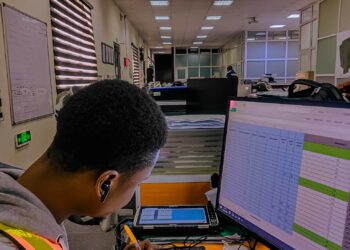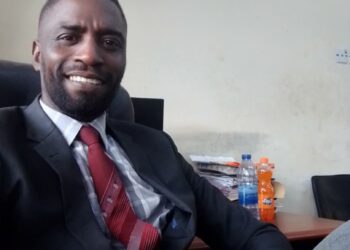Betting among African youth is a growing concern, with approximately 50% of the youth engaging in active betting. Betting is referred to as risking money on a race or an event by trying to predict the result. Its impact on Technical and Vocational Education and Training (TVET) is significant. Here’s an analysis of the major effects and factors fueling the challenge.
1. Reduced Focus and Academic Commitment
Youth who are heavily involved in betting often develop addictive behaviors that distract them from their studies.
The lure of quick money can reduce motivation to pursue long-term educational or skills development goals offered through TVET.
2. Financial Strain
Betting drains money that could otherwise be used for school fees, materials, or transport.
Students may drop out or skip classes due to lack of funds after losses, or may be pressured into borrowing, leading to debt and stress.
3. Mental Health Issues
Addiction to betting is linked to anxiety, depression, and low self-esteem, all of which affect learning ability and class participation.
The stress of chasing wins or covering losses can lead to absenteeism and poor performance in training programs.
Suicide , suicidal thoughts when the sum lost is some good amount of money.
4. Undermines the Values of TVET
TVET promotes hard work, innovation, and persistence, while betting promotes risk-taking and shortcuts.
This value conflict can erode the integrity of vocational education and diminish the perceived importance of skill acquisition.
5. Peer Influence and Campus Culture
Betting becomes a social activity on many campuses, influencing others to participate.
This can shift the culture from one of learning and skill-building to one dominated by gambling.
6. Loss of Future Workforce Potential
Students who drop out or fail due to betting-related issues contribute to higher youth unemployment and a shrinking skilled labor force.
This weakens national efforts to grow economies through TVET-led industrialization.
These are silently being fueled by these factors that need urgent attention to retard the impact.
Media Publicity and awareness
Betting companies are strategically utilizing both traditional and modern media platforms to reach millions of the youth in every corner of the continent. Betting sites are exponentially increasing, taking advantage of the deepening internet penetration plus the growing urbanization. The radio has also turned into media that advertises betting companies every ten minutes.
Quick returns promise
The untamed desire of young people to achieve overnight wealth and success with less capital starting with just 0.3 dollars continues to pull millions into the betting culture, especially with the belief that after just 90 minutes, return on investment is assured.
Digitalization of betting
Unlike in the past when people had to physically visit betting shops, online betting sites have enabled more young to have access to betting activities through their simple tools like smart phones and laptops.
Huge investment by stakeholders
Upon realizing the returns on investment, more people and companies in the private sector are joining the business. This happens when national leaders, politicians and their close associates decide to invest in betting sector than in TVET.
5 Relaxed regulations and monitoring
As the betting sector continues to attract Africa’s youthful population, relaxed regulations on establishment and operations are fueling the effects. For example, in some countries just 0.3 USD is needed to bet. Betting is also easily accessible by mobile phone and there is no age restrictions enforced.
Opportunity for Intervention
On the flip side, this challenge also creates an opportunity for TVET institutions to introduce financial literacy, life skills, and mental health programmes to combat betting.
Partnering with regulatory bodies and community leaders to raise awareness could also be part of institutional responsibility.
Profile of the Authors
Mulihi Bumali is the country manager of National Careers Week Uganda and team leader at Pamoja Careers Services. A graduate of Kyambogo University and Uganda Technical College Bushenyi, he is a technical teacher education specialist and civil engineering technician with over 11 years of experience in technical and vocational education. He has delivered numerous career talks across educational institutions in Uganda and is a strong advocate for accessible career education and TVET. Recognized by the International School of Uganda and the International Olympic Committee in 2009, Mulihi is also deeply committed to volunteerism, especially in education and community development.

Adilla Anyanzwa is a distinguished education professional with over 30 years of experience in technical education and administration across both public and private sectors. She currently serves as the Principal of Umma University TVET Institute, where she oversees institutional operations, curriculum development, and strategic growth. Under her leadership, the institute achieved TVETA registration and introduced CISCO and ICDL courses. Her career reflects a strong commitment to youth empowerment, policy implementation, and institutional development.
Previously, Adilla served as Principal at Chanzeywe Technical and Vocational College, where she managed a Kshs 33 million annual budget, secured partial scholarships through a partnership with Vibrant Village Foundation-Kenya, and upgraded the ICT lab with support from Safaricom Foundation. At Sigalagala National Polytechnic, she expanded the Hospitality Department, established a cost-saving bakery unit, and implemented a Kshs 15 million Baking Technology Certificate Course funded by the African Development Bank, which led to over 100% growth in student enrollment.
Her academic qualifications include an M.Ed. in Curriculum and Instruction from the University of Eastern Africa, Baraton, and a B.Ed. in Home Science and Technology from Moi University. Adilla is a certified trainer, assessor, and leader, having completed programs at the Kenya School of Government and TVET CDACC. She is affiliated with several professional bodies, including KATTI, KIM, and KNDI, and also contributes to school governance as a board member at St. Michael Muluwa Secondary School.



















































































 EduTimes Africa, a product of Education Times Africa, is a magazine publication that aims to lend its support to close the yawning gap in Africa's educational development.
EduTimes Africa, a product of Education Times Africa, is a magazine publication that aims to lend its support to close the yawning gap in Africa's educational development.